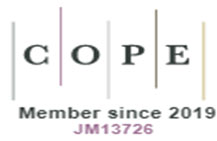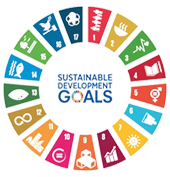A T Resmi, Mercy Mathew, Gemini V J, Paul Silvian S
A psychological injury is a diagnosable illness that affects a person’s thinking, emotional state and behavior. It can disrupt their ability to work and carry out other daily activities, and to engage in satisfying personal relationships. Unlike a physical injury, a psychological injury cannot be easily recognized and understood. This research document is a conceptual work, which tries to define and isolate stress and stress related injuries, as well as psychological injuries at work. Such an understanding would help the top management to cater and prevent injuries of such extent. Based on literature, a model has been developed for the study and the research document has defined “Psychological injury as an employee’s explicit manifestation of distress in the form of affective behavioral and cognitive dysfunction in work context”. This research document can be considered a seminal work done in Indian context. This works gains importance in the light of increasing number of lawsuits in Indian courts on work- related stress and agony. India still does not have any laws that deal with emotional health and stress related injuries at work or psychological injuries as compared to other countries like Canada, U.K and the U.S
[1] Cotton, P. and Hart, P. (2003) Occupational Wellbeing and Performance: A review of Organisation Health Research. Australian Psychologist, Vol. 38 No. 2. July 2003.
[2] Cotton, P. and Hart, P. (2011) Positive psychology in the workplace. http://www.psychology. org.au/publications/inpsych/2011/april/cotton/
[3] Cotton, P. (2005) The Prevention and Management of Psychological Injuries: An Evidence-Based Approach. DHS OH&S Forum. 25 February 2005 http://health.vic.gov.au/ohs/forum0205/cotton.pdf
[4] Cotton, P. (2009) Current Issues in the Return to Work Management of Psychological Injury. www.workcover.com/documents.ashx?Id=1614&type=ppt
[5] Cotton, P. (2012) What is Good Work? http:// www.thinkers.sa.gov.au/lib/pdf/MartinSeligman/ sowppts/BallC_1210_Cotton.pdf
[6] Day, A.L. and Livingstone, H.A. (2001) Chronic and acute stressors among military personnel: do coping styles buffer their negative impact on health? Journal of Occupational Health Psychology, 6:348–60
[7] DSM 5 available at URL www.dsm5.org/
[8] Engel G.L. (1980) The clinical application of the biopsychosocial model. American Journal of Psychiatry; 137: 535-544.
[9] Hart P. M. (1999) Predicting employee life satisfaction: A coherent model of personality, work and non-work experiences, and domain satisfactions. Journal of Applied Psychology, 84, 564-584
[10] Hart, P.M. and Cotton, P. (2002) Conventional Wisdom is Often Misleading: Police Stress Within an Organisational Health Framework. In M.F. Dollard, A.H. Winefiled, & H.R. Winefield (Eds), Occupational Stress in the Service Professions. London: Taylor & Francis. http://128.121.207.42/portal/resources/4ee81c8e386a2.pdf
[11] Hart, P.M., and Cooper, C.L. (2001) Occupational stress: Towards a more integrated framework. In N. Anderson, D.S. Ones, H.K. Sinagil & C. Viswesvaran (Eds.) Handbook of Industrial, Work and Organisational Psychology Vol 2 (pp. 93-114). Sage: London.
[12] Headey, B.W. and Wearing, A.J. (1989) Personality, life events and subjective well-being: Toward a dynamic equilibrium model, Journal of Personality and Social Psychology, 57,731-39.
[13] Headey, B.W. and Wearing, A.J. (1992) Understanding happiness: A theory of subjective wellbeing.Melbourne: Longman Cheshire.
[14] ICD 11 Available at URL www.who.int/whosis/icd11/
[15] Kessler, R.C. (1979) A strategy for studying differential vulnerability to the psychological consequences of stress. Journal of Health and Social Behavior, 20(2),100-108
[16] Kessler, R.C. (2002) Current issues in psychiatric epidemiology. Current Opinion in Psychiatry 15,181-186.
[17] Koch, W. J., Douglas, K. S., Nicholls, T. L., and O’Neill, M. L. (2006). Psychological injuries: Forensic assessment, treatment, and law. Oxford: Oxford University Press.
[18] Lazarus, R. and Folkman, S. (1984) Stress, appraisal, and coping.. New York: Springer.
[19] Phillips S. B. (2009) AGPA “ Mission Accomplished” Galaxy Camp Day for Military Children. 106th Air National Guard Wing, Gabeski Air Force Base, August 12, 2009. Phillips, S. B., Klein, R.,& Kleinberg, J. “Adaptation of the Basic Group Training Course AGPA” Long distance training for three months using Skype – University of Finance and Economics, Chengdu China. ( 8 sessions) April – June 2009.
[20] Sauter, S.L. and Murphy L.R. (Eds.), (1995). Organizational Risk Factors for Job Stress Washington, DC: APA.
[21] Selye, H. (1956) The stress of life. New York, NY: McGraw-Hill
[22] Williams, J.M. and Andersen, M.B. (1998) Psychosocial antecedents of sport injury: Review and critique of the stress and injury model. Journal of Applied Sport Psychology, 10, 5-25.


